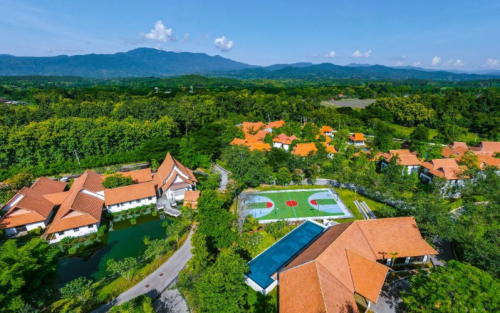
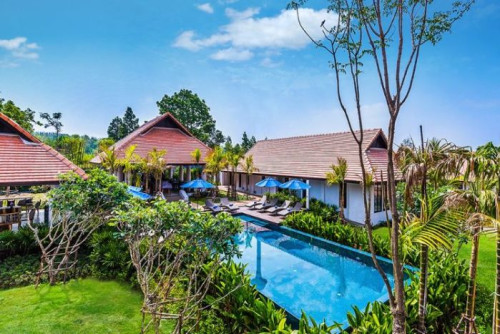
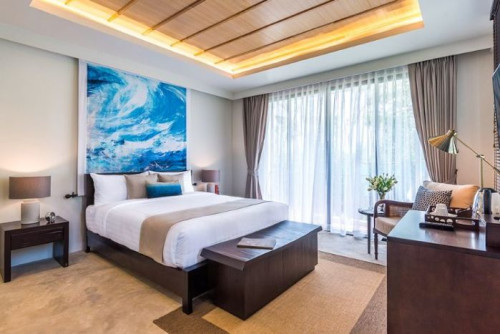
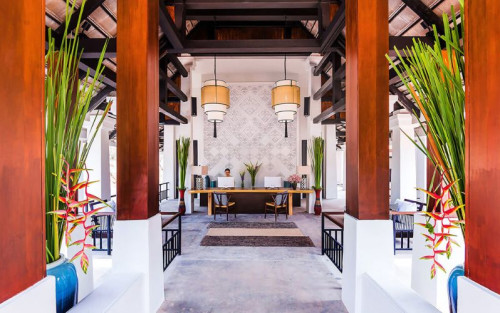
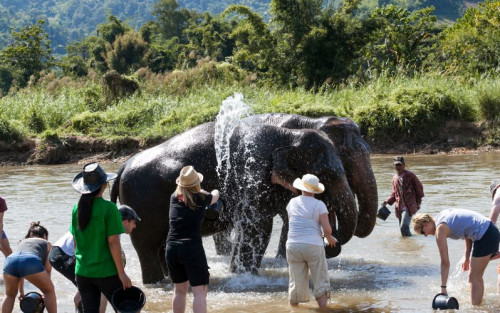




The Hills Rehab Chiang Mai
Verified Center
This provider's information has been quality-checked by Recovery.com's Research Team for accuracy and completeness, including center verification through appropriate third-party organizations.
Treatment Focus
This center treats substance use disorders and co-occurring mental health conditions. Your treatment plan addresses each condition at once with personalized, compassionate care for comprehensive healing.
Primary Level of Care
Offering intensive care with 24/7 monitoring, residential treatment is typically 30 days and can cover multiple levels of care. Length can range from 14 to 90 days typically.
Treatment Focus
This center treats substance use disorders and co-occurring mental health conditions. Your treatment plan addresses each condition at once with personalized, compassionate care for comprehensive healing.
Primary Level of Care
Offering intensive care with 24/7 monitoring, residential treatment is typically 30 days and can cover multiple levels of care. Length can range from 14 to 90 days typically.
Private Pay
You pay directly for treatment out of pocket. This approach can offer enhanced privacy and flexibility, without involving insurance. Exact costs vary based on program and length of stay. Contact the center for specific details.
The Hills Rehab Chiang Mai
The Hills Rehab Chiang Mai
About The Hills Rehab Chiang Mai
The Hills Rehab is a resort-like, 20-bed inpatient centre in the tranquil foothills of Northern Thailand, treating a wide range of addictions and co-occurring issues. With 24/7 nursing, a licensed psychiatrist, and an emphasis on healthy routines, they offer clients from around the world not only expert treatment but also the opportunity to heal in one of the world’s most peaceful and culturally rich destinations. Watch the 2-minute video on this page to see a day in the life at The Hills Rehab.
Engage in Therapies for Both Mind & Body
The Hills combines clinical safety with deep therapeutic care. Clients detox privately in their rooms with 24/7 nursing, under the supervision of a full-time psychiatrist and with an on-site emergency ward nearby. Therapies like cognitive behavioral therapy (CBT), exercise, and meditation promote holistic wellbeing, while brainspotting offers targeted healing for trauma, anxiety, and depression—helping clients process difficult emotions by working with both the brain and body.
Experience the Comforts of a 5-Star Resort
The Hills offers clients a secluded mountainside location designed for healing and anonymity. Each client stays in a beautifully appointed villa with a queen bed, rain shower, and modern amenities, offering private space to relax and reflect. World-class facilities—including a meditation pavilion, on-site restaurant, smoothie bar, spa, and fitness centre—nurture both restoration and wellbeing. After the first week, clients may access personal devices for limited daily use, with guidelines set by the clinical team to maintain therapeutic focus.
Maintain Progress After Treatment
The Hills Rehab offers robust aftercare services, including ongoing therapy, support groups, and personalized relapse prevention strategies to help clients maintain long-term sobriety after completing their treatment programme.

Highlights from the Center
Highlights
These highlights are provided by and paid for by the center.
Certified Professionals
On-site Medical Detox
Private Villa
Trauma Treatment
Center Overview
Treatment Focus
This center treats substance use disorders and co-occurring mental health conditions. Your treatment plan addresses each condition at once with personalized, compassionate care for comprehensive healing.

The Hills Rehab Chiang Mai
Pricing and Program Length
Estimated Center Costs
The cost listed here ($12,900 USD / 28 days), is an estimate of program cost. Center price can vary based on program and length of stay. Contact the center for more information. Recovery.com strives for price transparency so you can make an informed decision.

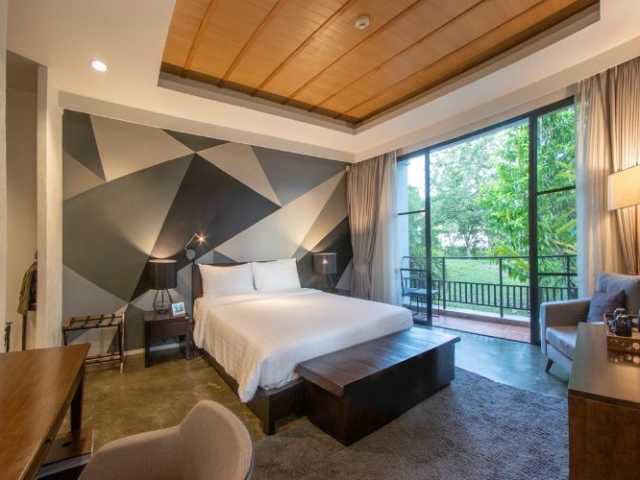


Recovery.com Verified Listing
Recovery.com verified that the name, location, contact information and license to operate for this treatment provider are valid and up-to-date.

Licensed by Thailand
Recovery.com is an independent, third-party mental health resource. Verification does not imply endorsement and does not guarantee the quality of treatment services.
Meet Your Care Team

Dr. Awirut Oon-arom
Clinical Psychiatrist
Clinical Fellowship In Addiction From Canada Assistant Professor In Psychiatry, License Number 49763
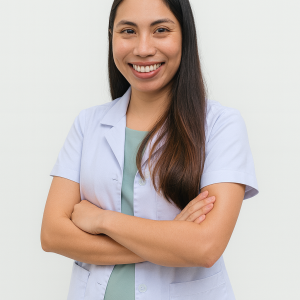
Dr. Tanrin Hiranwong
Clinical Psychiatrist
M.D., FRCPsychT
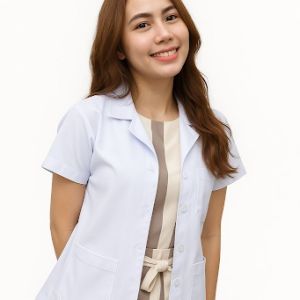
Dr. Chayanis Som-on
Clinical Psychiatrist

Mohammad Kathrada
Psychotherapist
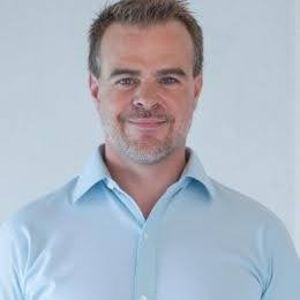
Peter Maplethorpe
Admissions Director

Arina Lapsiriphon
Rehab Center Director
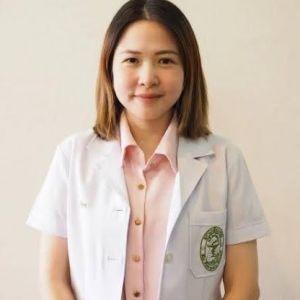
Jib
Pharmacist

Yam
Head of Nursing

Surush
Senior Licensed Nurse

Nuey
Senior Licensed Nurse

Joshua
Senior Licensed Nurse
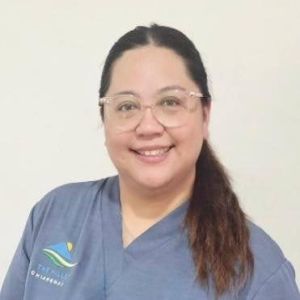
Ying
Senior Licensed Nurse
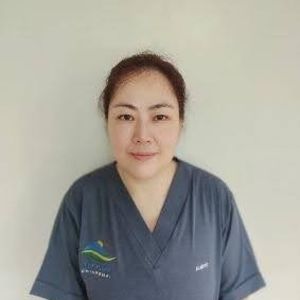
Mam
Senior Licensed Nurse

Pumpui
Licensed Nurse Assistant
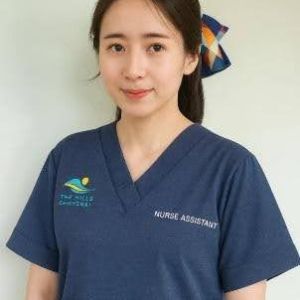
View
Licensed Nurse Assistant

Ninew
Licensed Nurse Assistant
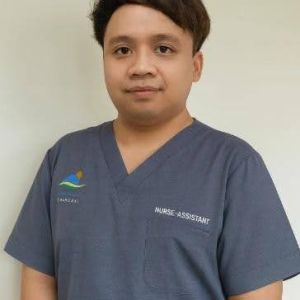
Wall
Licensed Nurse Assistant

Jay
Head of Support

Jan
Assistant Support Manager

Stamp
Support Staff

Bailarn
Support Staff

Koh
Muay Thai Instructor

Tum
Personal Trainer
Your Care Options
Specializations
Alcohol
Using alcohol as a coping mechanism, or drinking excessively throughout the week, signals an alcohol use disorder.
Detox
Detox fully and safely removes toxic substances from the body, allowing the next steps in treatment to begin with a clean slate.
Benzodiazepines
Benzodiazepines are prescribed to treat anxiety and sleep issues. They are highly habit forming, and their abuse can cause mood changes and poor judgement.
Cocaine
Cocaine is a stimulant with euphoric effects. Agitation, muscle ticks, psychosis, and heart issues are common symptoms of cocaine abuse.
Drug Addiction
Drug addiction is the excessive and repetitive use of substances, despite harmful consequences to a person's life, health, and relationships.
Opioids
Opioids produce pain-relief and euphoria, which can lead to addiction. This class of drugs includes prescribed medication and the illegal drug heroin.
Trauma
Some traumatic events are so disturbing that they cause long-term mental health problems. Those ongoing issues can also be referred to as "trauma."
Who We Treat
Young Adults
Emerging adults ages 18-25 receive treatment catered to the unique challenges of early adulthood, like college, risky behaviors, and vocational struggles.
LGBTQ+
Addiction and mental illnesses in the LGBTQ+ community must be treated with an affirming, safe, and relevant approach, which many centers provide.
Midlife Adults
For adults ages 40+, treatment shifts to focus on the unique challenges, blocks, and risk factors of their age group, and unites peers in a similar community.
Mild Disabilities
Adults with mild physical or intellectual disabilities receive treatment catered to their specific needs in a safe and clinically supportive environment.
Treatment Services
Detox
Detox fully and safely removes toxic substances from the body, allowing the next steps in treatment to begin with a clean slate.
Residential
In a residential rehab program, patients live onsite, with access to daily treatment and 24-hour care. An average stay is 30-90 days.
Approaches
Evidence-Based
A combination of scientifically rooted therapies and treatments make up evidence-based care, defined by their measured and proven results.
Family Involvement
Providers involve family in the treatment of their loved one through family therapy, visits, or both–because addiction is a family disease.
Individual Treatment
Individual care meets the needs of each patient, using personalized treatment to provide them the most relevant care and greatest chance of success.
Medical
Medical addiction treatment uses approved medications to manage withdrawals and cravings, and to treat contributing mental health conditions.
Non 12 Step
Non-12-Step philosophies veer from the spiritual focus of the 12-Steps and instead treat the disease of addiction with holistic or secular modalities.
Therapies
1-on-1 Counseling
Patient and therapist meet 1-on-1 to work through difficult emotions and behavioral challenges in a personal, private setting.
Mindfulness Therapy
This ancient practice can be mental, emotional, and even spiritual. In meditation, you focus your attention on the present moment without judgement.
Art Therapy
Visual art invites patients to examine the emotions within their work, focusing on the process of creativity and its gentle therapeutic power.
Elephant Therapy
Interacting with these awe-inspiring animals can help you regulate your emotions and practice communication.
Experiential Therapy
With this approach, patients heal by doing. Therapists help patients process difficult emotions to speak, using guided activities like art or dance.
Eye Movement Therapy (EMDR)
Lateral, guided eye movements help reduce the emotional reactions of retelling and reprocessing trauma, allowing intense feelings to dissipate.
Family Therapy
Family therapy addresses group dynamics within a family system, with a focus on improving communication and interrupting unhealthy relationship patterns.
Conditions We Treat
Pornography Addiction
A person with a porn addiction is emotionally dependent on pornography to the point that it interferes with their daily life and relationships.
Grief and Loss
Grief is a natural reaction to loss, but severe grief can interfere with your ability to function. You can get treatment for this condition.
Anger
Although anger itself isn't a disorder, it can get out of hand. If this feeling interferes with your relationships and daily functioning, treatment can help.
Anxiety
Anxiety is a common mental health condition that can include excessive worry, panic attacks, physical tension, and increased blood pressure.
Bipolar
This mental health condition is characterized by extreme mood swings between depression, mania, and remission.
Codependency
Codependency is a pattern of emotional dependence and controlling behavior. It's most common among people with addicted loved ones.
Depression
Symptoms of depression may include fatigue, a sense of numbness, and loss of interest in activities. This condition can range from mild to severe.
Gambling
Excessive, repetitive gambling causes financial and interpersonal problems. This addiction can interfere with work, friendships, and familial relationships.
Substances We Treat
Alcohol
Using alcohol as a coping mechanism, or drinking excessively throughout the week, signals an alcohol use disorder.
Benzodiazepines
Benzodiazepines are prescribed to treat anxiety and sleep issues. They are highly habit forming, and their abuse can cause mood changes and poor judgement.
Chronic Relapse
Consistent relapse occurs repeatedly, after partial recovery from addiction. This condition requires long-term treatment.
Co-Occurring Disorders
A person with multiple mental health diagnoses, such as addiction and depression, has co-occurring disorders also called dual diagnosis.
Cocaine
Cocaine is a stimulant with euphoric effects. Agitation, muscle ticks, psychosis, and heart issues are common symptoms of cocaine abuse.
Drug Addiction
Drug addiction is the excessive and repetitive use of substances, despite harmful consequences to a person's life, health, and relationships.
Ecstasy
Ecstasy is a stimulant that causes intense euphoria and heightened awareness. Abuse of this drug can trigger depression, insomnia, and memory problems.
Heroin
Heroin is a highly addictive and illegal opioid. It can cause insomnia, collapsed veins, heart issues, and additional mental health issues.
Languages
Aftercare
Care Designed for Your Needs
Personal Amenities
Amenities
Special Considerations
Executive Program
Addiction and mental health treatment for executives typically involves high discretion, greater technology access, and more private, 1-on-1 care.
Flexible technology policies
Centers with flexible technology policies allow professionals to stay in touch with work and give patients a greater sense of connection and normalcy.
LGBTQ group
Group therapy unites LGBTQ+ patients in a safe and culturally competent setting, encouraging peer support under the expert leadership of a therapist.
Activities
Yoga
Yoga is both a physical and spiritual practice. It includes a flow of movement, breathing techniques, and meditation.
Off-Site Activities
Off-Site Amenities
Learn More About the Center
Exploring Chiang Mai
Enhance the healing journey with nature, culture, and adventure.
Young Adult Programme
Discover structured support to help young adults grow, cope, and build lasting resilience.
Family Support at The HIlls
Find expert guidance to rebuild trust and strengthen relationships during recovery.
Why People Choose Chiang Mai for Rehab
Explore what makes Chiang Mai an ideal setting for transformative healing.
What people are saying
Treatment
4.5
Accommodations
4.8
Food & Nutrition
4.4
Value
4.4
Pros
- Beautiful Location (14)
- Friendly & Competent Staff (9)
- Supportive Aftercare (8)
- Treated My Loved One With Respect (7)
Cons
- Limited Aftercare (2)
- Limited Family Program (2)
JM
Treatment in 2024 • (45 days) • Reviewed 08/02/24
Former Client
•Business Owner
•North America
Stefan
Treatment in 2024 • (35 days) • Reviewed 03/21/24
Former Client
•Senior Manager in a Multinational
Anonymous
Treatment in 2022 • (30 days) • Reviewed 01/18/23
Former Client
•Vietnam
S
Treatment in 2023 • (60 days) • Reviewed 05/13/23
Former Client
•Canada
TH
Treatment in 2023 • (60 days) • Reviewed 08/26/23
Loved One of a Former Client





